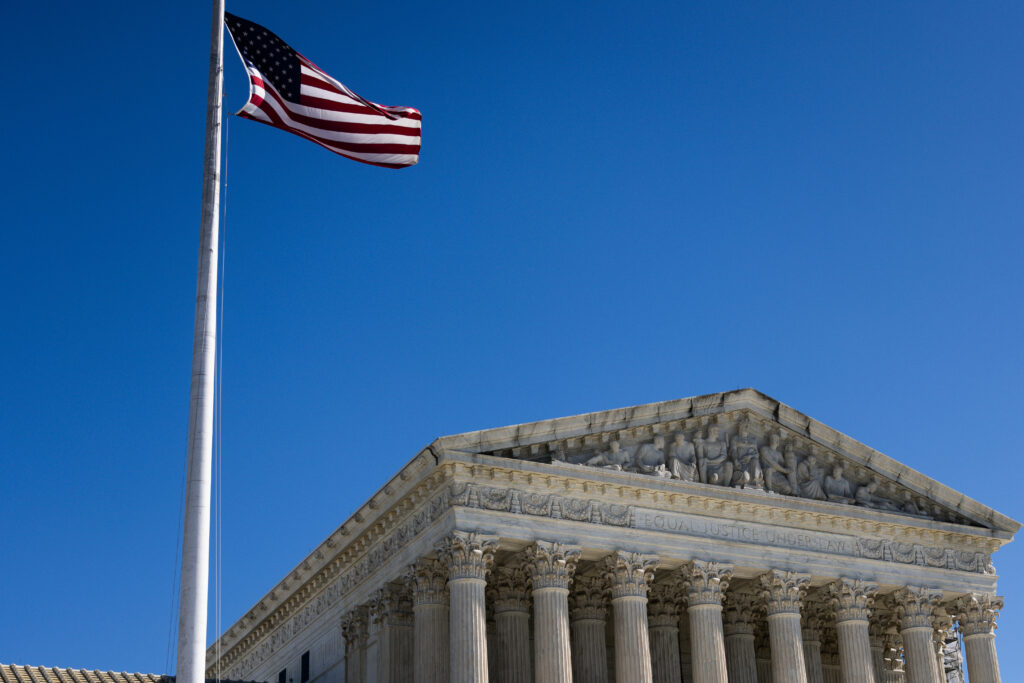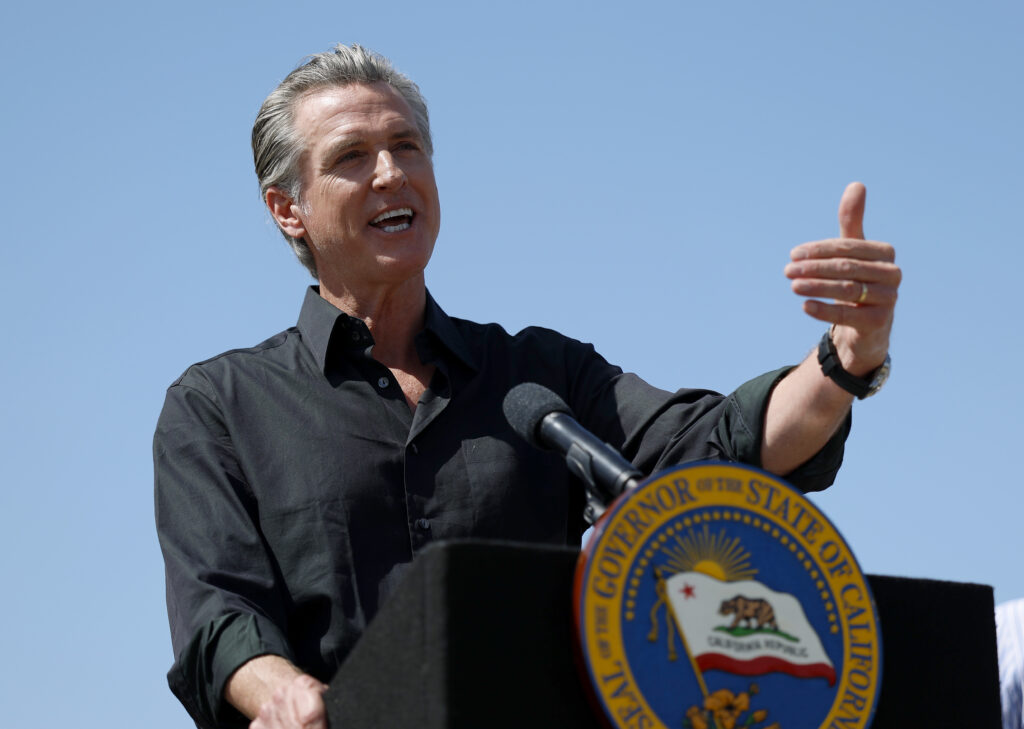Derrière le droit du sol, la Cour suprême américaine appelée à brider les pouvoirs des juges
La Cour suprême américaine examine jeudi la suspension par les tribunaux du décret de Donald Trump revenant sur le droit du sol, le président républicain contestant le pouvoir des juges à prononcer des décisions de portée nationale.Dès le 20 janvier, jour de son investiture, Donald Trump a signé ce décret, l’un des plus critiqués de son nouveau mandat, affirmant vouloir ainsi combattre l’immigration clandestine. Il avait alors qualifié de “ridicule” le principe du droit du sol, consacré par le 14e amendement de la Constitution, disposant que tout enfant né aux Etats-Unis est automatiquement citoyen américain, et appliqué depuis plus de 150 ans.Le décret présidentiel a été rapidement contesté en justice et son application a été suspendue sur tout le territoire américain par plusieurs tribunaux et cours d’appel fédéraux.L’administration Trump a donc sollicité l’intervention de la Cour suprême à majorité conservatrice dans cette bataille judiciaire.Elle a demandé a minima aux neuf juges – six conservateurs et trois progressistes – de limiter la portée des décisions des juridictions inférieures aux seules personnes directement concernées, à savoir celles qui ont saisi la justice, dénonçant ce qu’elle décrit comme une dérive.”La nécessité d’une intervention de la Cour est devenue urgente étant donné que les suspensions à portée universelle ont atteint des proportions de tsunami”, assure le conseiller juridique du gouvernement, John Sauer, dans ses arguments écrits.”Ces suspensions nuisent irrémédiablement à notre système de séparation des pouvoirs en interdisant au pouvoir exécutif d’appliquer une politique fondamentale du président”, ajoute-t-il.-“Uniformité de la nationalité”-“Les suspensions à portée universelle garantissent l’uniformité de la nationalité américaine, un domaine dans lequel une cohérence à l’échelle nationale est d’importance vitale”, font au contraire valoir deux associations de défense des immigrés qui ont obtenu la suspension du décret.”La nationalité d’un enfant ne devrait pas dépendre de son Etat de naissance ou de l’association à laquelle ses parents ont adhéré”, insistent-elles.Si la Cour suprême donnait raison à l’administration Trump, “un bébé né dans le New Jersey serait un citoyen américain et un membre à part entière de la société, mais il serait un étranger expulsable s’il était né dans le Tennessee”, soulignent ces associations.Les administrations successives, républicaines comme démocrates ont souvent exprimé leur frustration envers ces suspensions à portée universelle qui permettent à un seul juge fédéral de bloquer leur politique, sur des sujets d’importance nationale, comme l’avortement, l’immigration ou encore les prêts étudiants.Le nombre record de décisions de l’administration Trump contrecarrées par les juges est dû non au “militantisme politique” d’un petit nombre de magistrats radicalisés comme elle le prétend, mais tout simplement au volume inédit d’actions entreprises par l’exécutif, remarque le constitutionnaliste Steven Schwinn. “Ce qu’il se passe, c’est que l’administration Trump outrepasse constamment ses prérogatives et les tribunaux font ce qu’ils doivent faire, à savoir réfréner les actions illégales dans un système de séparation des pouvoirs”, explique à l’AFP ce professeur de droit constitutionnel à l’Université de l’Illinois à Chicago.Plusieurs juges de la Cour suprême, conservateurs comme progressistes, ont critiqué ces suspensions à portée nationale.Mais le sujet de l’acquisition de la citoyenneté américaine ne se prête guère à une décision de la Cour en faveur de l’administration Trump, estime Steven Schwinn.La décision de la Cour suprême est attendue d’ici le terme de sa session actuelle, fin juin.Le décret présidentiel interdit au gouvernement fédéral de délivrer des passeports, des certificats de citoyenneté ou d’autres documents aux enfants dont la mère séjourne illégalement ou temporairement aux Etats-Unis, et dont le père n’est pas citoyen américain ou résident permanent – titulaire de la fameuse “carte verte”.Le 14e amendement a été adopté en 1868, après la Guerre civile et l’abolition de l’esclavage, afin de garantir les droits des esclaves affranchis et de leurs descendants.







